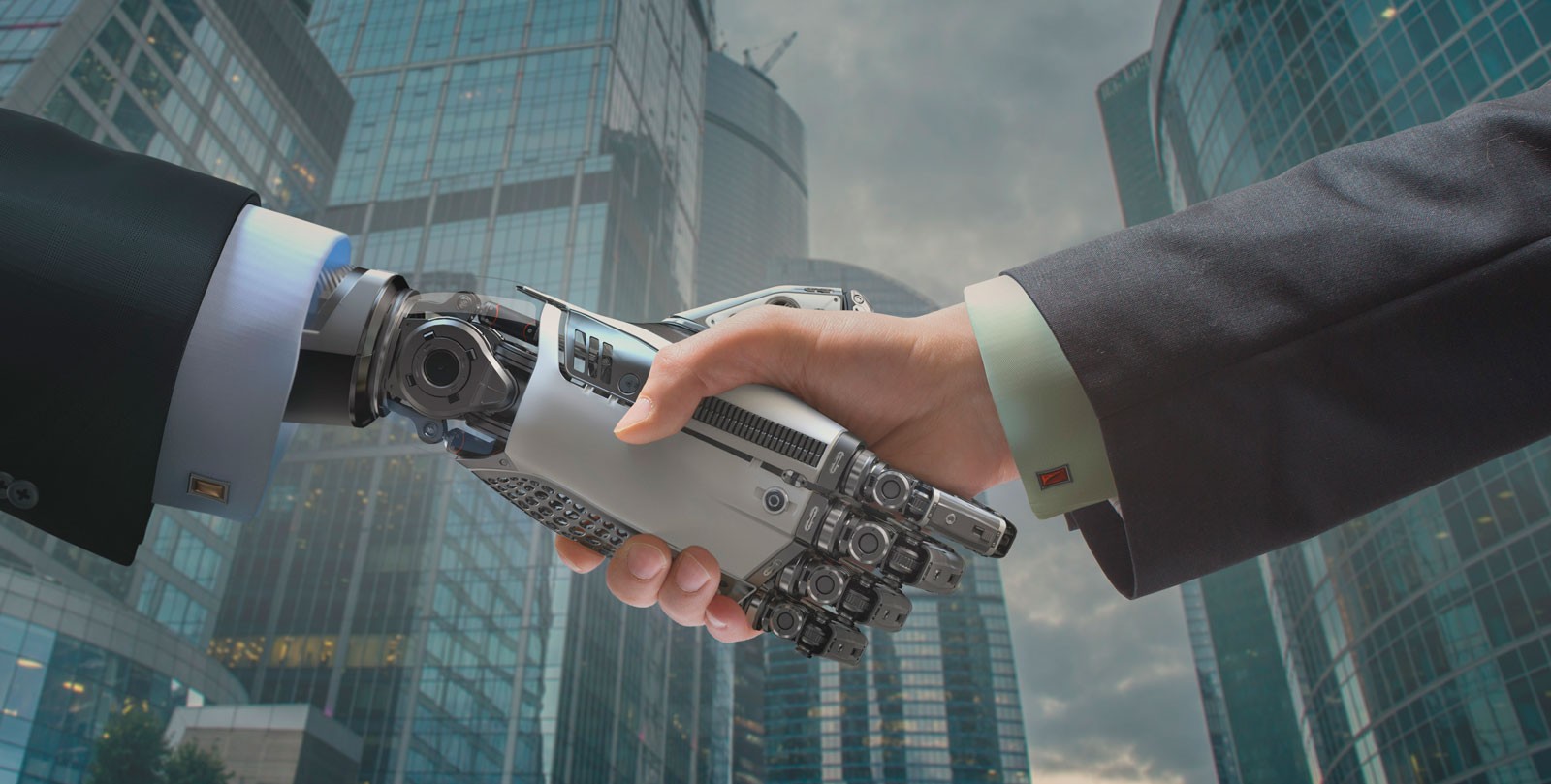Artificial intelligence (AI) is transforming industries faster than ever before—reshaping the skills employers seek and the roles professionals play. For many in tech and business, one question looms large: How do you future-proof your career in an era where AI is rewriting the rules?
This was the central theme at the 2nd annual Industry Day organised by the SMU School of Computing and Information Systems (SCIS). Moderated by Dr Patrick Thng, Director of the SMU Master of IT in Business (MITB) (Financial Technology & Analytics) programme, the panel brought together industry leaders to explore how AI is redefining the workforce and what professionals can do to stay ahead.
“In the age of AI, every job is a tech job,” remarked Mr Richard Goh, Head of Strategic Initiatives at Amazon Web Services—encapsulating a key message that resonated throughout the discussion.
L–R: Moderator Dr Patrick Thng, Director of the SMU Master of IT in Business (MITB) (Financial Technology & Analytics) programme; Dr Brindha Priyadarshini Jeyamaran, Head of AI Governance at UOB; Mr Richard Goh, Head of Strategic Initiatives at Amazon Web Services; Mr Gerry Chng, Chair of AI Ethics & Governance SIG at the Singapore Computer Society.
Will AI take your job?
Contrary to widespread fears about mass job displacement by AI, the panellists presented a nuanced view of AI’s current impact.
Mr Gerry Chng, Partner and Head of Cyber at KPMG Singapore, cited striking statistics from an MIT report: while AI adoption rates are high, only 5% of enterprise AI projects make it to production. Even though 40% of companies have invested in enterprise LLM subscriptions, employees in 90% of these companies use personal AI tools instead for daily tasks.
“The ingredients are right for disruption, but we’re not seeing it materialise at the scale many predicted,” explained Mr Chng, who is also Chair of AI Ethics & Governance SIG at the Singapore Computer Society. This gap between AI’s potential and its practical implementation presents a window of opportunity for new graduates entering the workforce.
He likened today’s AI transformation to the computer revolution decades ago, suggesting that AI will become a foundational skill across every sector. The key, he added, is to master AI instead of avoiding it.
Hybrid skills are in demand
Pure technical expertise is no longer enough for succeeding in a role, says Dr Brindha Priyadarshini Jeyamaran, Head of AI Governance at UOB. Today’s employers value candidates with skills in three critical areas: technical competency, domain knowledge, and management capabilities.
“Traditionally, specialising in a certain domain like computer science or electronics would have been sufficient to get you started in your career. But today, we need a hybrid of skills,” she shared. “We want people who can think critically, solve problems independently, and organise themselves effectively.”
Dr Thng concurred, noting that industry surveys have shown a demand for employees with inter-disciplinary knowledge. He added that SCIS has long recognised that industry-ready graduates need not just technical skills, but also the ability to understand business contexts, communicate effectively, and navigate organisational complexity.
Mr Chng, an alumnus of the MITB programme, added that success now depends on pairing domain expertise with AI literacy.
“Use the tools available to build deeper knowledge in your chosen field, whether it’s finance, healthcare, or cybersecurity,” he advised. “Then learn to work effectively with AI tools to amplify that expertise.”
Emerging opportunities in the AI ecosystem
While AI may automate certain tasks, it is simultaneously creating new opportunities in areas such as infrastructure, governance, and implementation.
Mr Goh pointed out that enormous opportunities exist in providing supporting infrastructure for AI—from renewable energy solutions to data centres.
“When there’s a gold rush, sell picks and shovels,” he quipped, referencing the rising need for experts in energy contract negotiation, power distribution, and networking infrastructure.
Dr Jeyamaran highlighted the growing importance of AI governance, especially in regulated industries like finance and healthcare. Professionals who can navigate regulatory requirements while building responsible AI systems will be increasingly sought after.
Mr Chng identified another crucial role: AI implementation specialists who can increase AI deployment rates from today’s 5% to 40-50%. These professionals blend technical proficiency, domain knowledge, and change management skills to bridge the gap between strategy and execution.
Ultimately, the panellists encouraged the audience to be open to new tools and adopt the “ABC” approach to thrive in an ever-changing economy: be Adaptive, Bold, and Curious.
“It’s not about who goes the fastest anymore, but who’s adaptable to the fastest-moving technology,” concluded Dr Jeyamaran.
Lead the AI Transformation with the SMU MITB
As industries evolve, professionals who can bridge technology, strategy, and innovation will lead the next wave of change.
The SMU Master of IT in Business (MITB) programme equips you with exactly that advantage — integrating data analytics, financial technology, and digital transformation to prepare you for leadership in the AI economy.
Ranked 2nd in Asia in the 2026 QS Master’s in Business Analytics, the MITB combines academic rigour with hands-on experience, empowering you to turn AI disruption into opportunity.
Take the next step toward a future-ready tech career. Discover the SMU Master of IT in Business (MITB) programme today.





